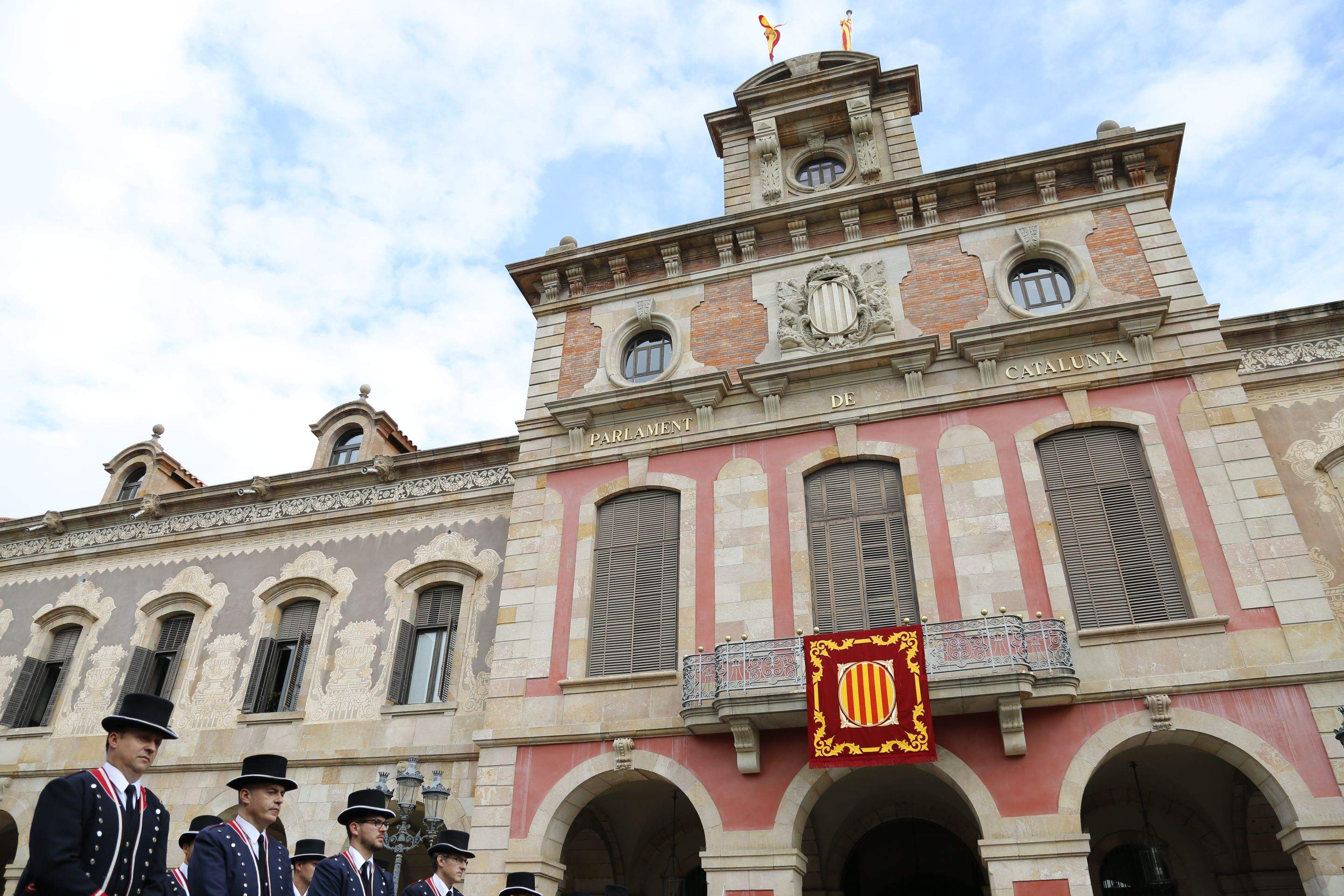A report ordered by the Catalan Parliament's secretary general from the chamber's legal services puts in doubt the constitutionality of the measures the Spanish government proposes taking through article 155 of the Spanish Constitution which would affect Catalan authorities including the government and Parliament. The report describes the taking over of the powers of the Catalan president as an "attack against the rule of law" and the admission "that a royal decree takes priority over a law like the Statute [of Autonomy of Catalonia], part of the constitutional block" as a "violation of the principle of legality and of legal hierarchy".
The document is signed by five lawyers and says that the "dismissal of the president and government of Catalonia raises serious doubt about how it fits within the current constitutional and statutory law", that "the configuration of self-governance cannot be suspended" and that, with the actions against the Parliament, "the characteristic features of the parliamentary system and eliminated in a way that is totally irreconcilable with the Constitution and the Statute [of Autonomy]". The document is not definitive as it could still receive contributions from the Board of Lawyers, but this is the report that was ordered, signed by the lawyers entrusted with the task.
The chamber's secretary general, Xavier Muro, decided to entrust the legal services with this report to analyse the constitutionality of the plan for article 155 and their possibilities for appeal when the Spanish cabinet agreed upon its application. It was signed and backed by the lawyers Esther Andreu, Francesc Pau, Joan Ridao and Pere Sol, and coordinated by Imma Folchi.
"The ability to give instructions to all the authorities of an autonomous community, as defined by section 2 of article 155, cannot include their dismissal or cessation, because the supreme representation of the government of Catalonia and the ordinary representation of the [Spanish] state corresponds to the president [of Catalonia], and only to him".
"The configuration of self-governance cannot be suspended"
The report adds that "in the case that it's a measure to ensure the fulfilment of instructions given to the Catalan government, it must be noted that the legal system already foresees mechanisms to assign political and, if necessary, penal responsibility, [mechanisms] attributed to bodies distinct from the Spanish prime minister".
Other measures it deems to be contrary to the Constitution and Statute of Autonomy include the intervention in the Catalan government, its bodies and the Parliament and also the calling of regional elections by Madrid, because "the configuration of self-governance cannot be suspended through the application of [article] 155". It says that "the instructions from the Spanish government cannot alter the provisions of the basic institutional law of Catalonia, which defines the essential content of the right of autonomy".
"In other words, a statutory ability of the president of Catalonia cannot be transmuted into a duty imposed from outside the Statute [of Autonomy]. The contrary would be to modify the Statute outside the mechanisms defined for its reform, through a mere order," reads the text.
"An exorbitant measure"
As for the intervention in the Parliament itself, they argue that "that which defines the parliamentary system is suspended and cancelled in an aberrant manner, because within the parliamentary system, a Parliament without the ability to create, maintain, control and terminate a government is an exorbitant measure which makes no sense in legal terms".
The document also says that article 155 "is an exceptional mechanism to defend the Constitution, not applicable in any and all disputes or differences of approach between parties" and that it seems "beyond doubt that the coercive measures have to fit within the principles of necessity, proportionality, appropriateness for the specific case and doing the least harm possible to the autonomous community's rights, since, otherwise, they could be declared unconstitutional".

